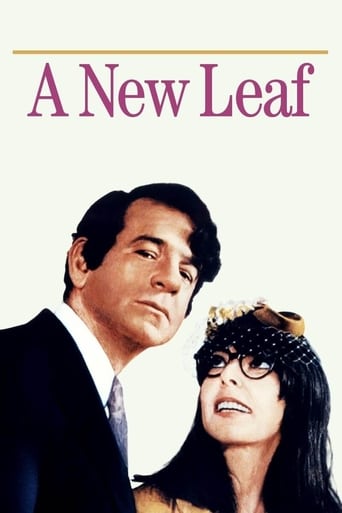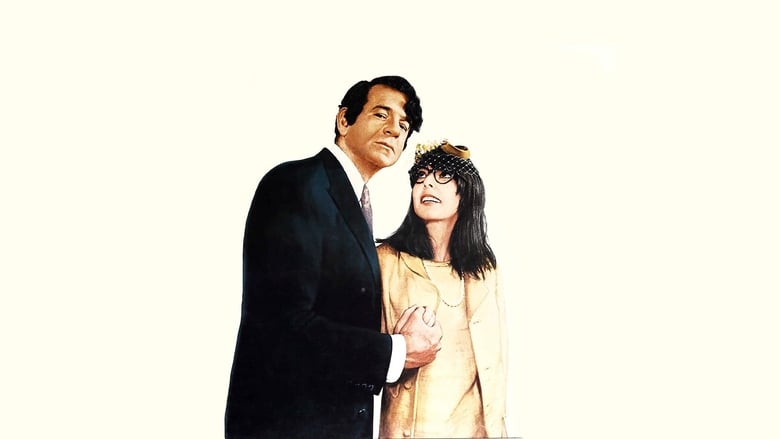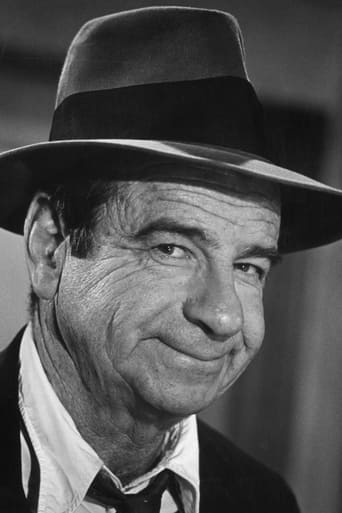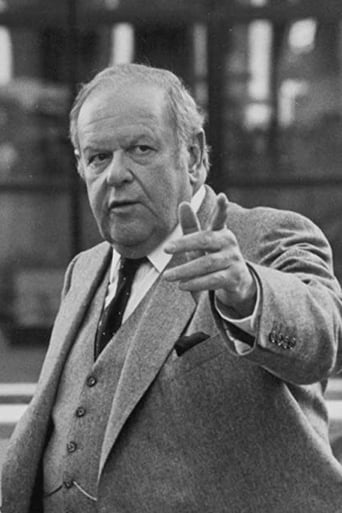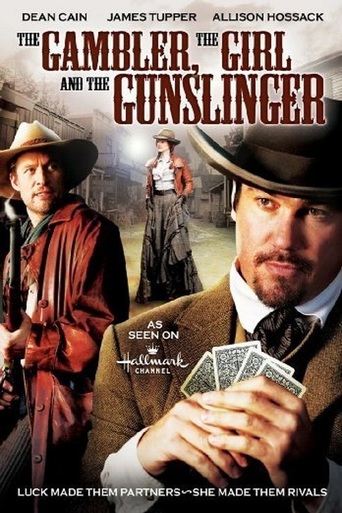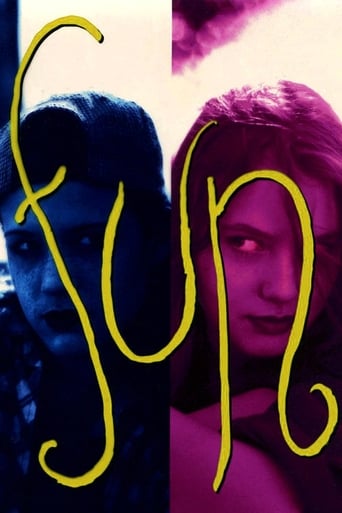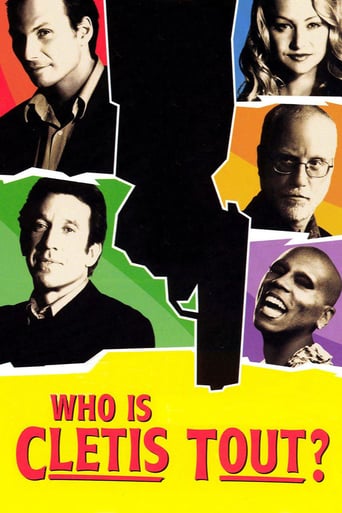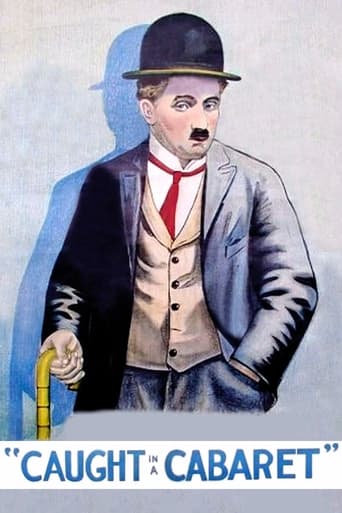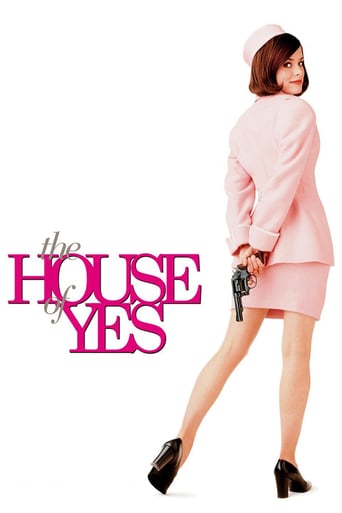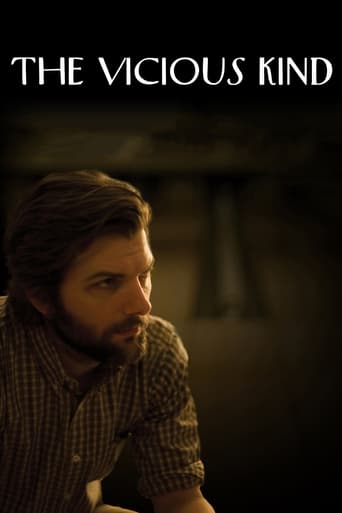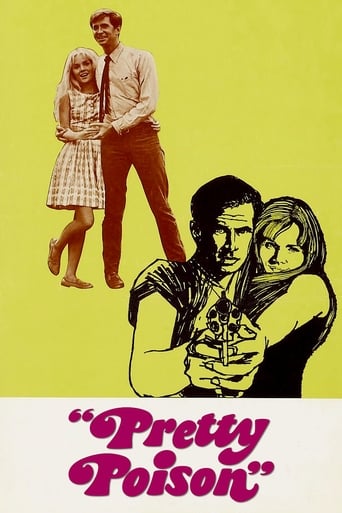A New Leaf (1971)
Henry Graham lives the life of a playboy. When his lawyer tells him one day that his lifestyle has consumed all his funds, he needs an idea to avoid climbing down the social ladder.
Watch Trailer
Cast


Similar titles
Reviews
Recently I've caught a number of Walter Matthau films on cable. Matthau was long a favorite of mine since I first really noticed him as more than a character actor (which was probably when my mother and I went to see "The Odd Couple", which doesn't seem quite so funny now, but had us in stitches back in 1968). Seeing some of Matthau's old films recently reminded me of just how good he was, after taking him for granted for so many years. He could do character roles (as most of his early career was; and many were impressive) or starring roles. He could do drama (such as "First Monday In October") or comedy.This particular film -- "A New Leaf" -- is one of Matthau's best. Certainly, as with almost any film, more than one actor could play the starring role. But Matthau had a certain persona which allowed him to make this role in this film his own. Had anyone else been the star, it would have been a VERY different film. What Matthau could do with dead pan was amazing. The early scenes in this movie, where Matthau's character learns that he is dead broke are just hilarious. Hilarious writing, to be sure, but also hilarious because of that Matthau persona. I can't think of another actor who could have handled those scenes in that way. Yes, Matthau was relatively unique...and that's why we liked him so much as to make him a major star in an everyday body.And that's true about this film, too. It's interesting to read the Wikipedia article about the film, which was Elaine May's creation. Thankfully, the big bosses at Paramount didn't allow her to have her way with the final film. Would we really want to sit through 3 hours of a film in which Matthau actually becomes a murderer? I don't think so...and neither did Matthau. May's version would have justified murder (which isn't usually very funny), while this version shows redemption (of both main characters, though mostly of Matthau's character). But what is good about this film is that it doesn't seem to be a rehash of a lot of other films. Like Matthau's performance, the film is relatively unique. Oddly enough, as widely respected as the film was at the time (in terms of reviewers), it was not very successful at the box office. Yet, I still see it as a gem.In addition to Walter Matthau, the movie also stars Elaine May in as good a role as she ever had on the big screen. I always saw May as a "niche" actress, and this is her niche. It was nice to see an actor -- James Coco -- who I had pretty much forgotten about; he's funny here. George Rose is excellent here as the butler. Jack Weston -- one of those character actors who usually played pretty much the same part -- is perfect here as the shady lawyer. And, it's interesting to see a relatively young Doris Roberts, although her part is not large.I'm quite enamored with this film, although it still only get's my "7" for being a very watchable and enjoyable film. But I highly recommend it.
Henry (Walter Matthau), having squandered his large inheritance, his butler advises him that his only remedies are either suicide or marrying for money. The first option is less appealing to Henry so he quickly searches for a likely candidate--and finds Henrietta (Elaine May).This film is an example of what's sometimes called "comedy noir" in which undesirable acts or conditions set the stage for satire or laughs. Henry's an arrogant, completely self-centered man, profligate of his considerable inheritance, and seemingly never with any close emotional relationships. He risks taking out a very punitive short term loan to maintain his appearances as a man of considerable means with the aim of both quickly finding a wealthy woman to marry and then "doing her in." He finds his ideal candidate/victim: Henrietta --- the only child of deceased parents, extremely wealthy, a botanical scientist, AND with almost NO social sense or grace. Henry quickly courts her, proposes, and they marry. Henry researches potential poisons while Henrietta is researching ferns. But suddenly, Henry realizes Henrietta's love for him has become as gratifying as her abundant money and he begins a transformation. This film is liberally sprinkled with great (funny) one-liners and dialog; many people find it side-splitting hilarious. I chuckled some but neither Henry's extreme haughtiness nor Henrietta's "Asperger's"-like behavior was that funny to me nor such quick transformations believable.My rating of 6 was possibly influenced by my career (clinical psychologist) working with disturbed people which may have lessened my appreciation? Most friends in non-therapeutic fields think it's extremely funny.FWIW: Elaine May's (the director as well as co-star) original version of this film was 3 hours long which the studio found unacceptable so it was cut to its present length, eliminating 2 murders in the process. Elaine May was so dissatisfied with this cutting, she sought to have her name removed from the film credits. More about this can be found in IMDb's "Did You Know" Trivia for this film and/or look for this film's title on Wikipedia.
A New Leaf (1971)A kookie, forcibly odd movie. If at first you think it's just plain stupid, keep watching. It's really well balanced, smartly written, and acted with more restraint than usual for a madcap movie like this.It's billed (by some) as filled with dark humor, but it didn't strike me as dark, not like the contemporary "Harold and Maude" for example. But there is an unusual tone achieved here that is just slightly different and worth getting a feel for. There is, for another example, a parallel in general plot and scenario to "How to Murder Your Wife" from 1965, complete with the willing butler and the hapless rich bachelor, but that movie is a silly 1960s farce and this one has an edge of almost poignancy to it. (I write that word and think Elaine May would cringe--only because I don't think there is an intention to be sentimental or even romantic, the last scene notwithstanding.)The star is singularly Walter Matthau, who is almost necessarily goofy just by appearances. But maybe the first clever trick by the director, Elaine May, is putting the goofy man in even goofier situations so that he comes off as actually someone serious and believable. To have his character, Henry Graham, driving in his red Ferrari wearing a crash helmet is pure insanity, yet you don't blink an eye. The guy is self-absorbed and nuts. But also very likable, a little out of touch the way we all are, or wish we could be (if we had his money).And of course the man's dilemma is stated immediately: the money he once had so much of is used up. And you have to see to appreciate the one long scene in the first twenty minutes with Graham meeting his financial adviser about some bounced checks. This is comedy at its absolute best--I mean that. Watch only this scene if you must (and I dare you to skip the rest of the movie once you do). The actor opposite Matthau here is William Redfield, who pulls off the most brilliant of performances. The other leading character, eventually, is Elaine May herself as the clumsy, naive, filthy rich scientist who Graham sets his sights on for salvation. She is terrific, as well, and like Woody Allen of the same time ("Bananas" is also 1971) seems to direct her own comic zaniness with a calculated distance. The rest of the shenanigans play out with the necessary twists, and it's consistently funny. So, see this for its freshness even four decades later. No wonder it has a (small but growing) cult following. May has suffered historically from having made the bizarrely awkward "Ishtar" and for being forever linked in the early 1960s as the comedy partner of Mike Nichols, whose movie career overshadows almost everyone's. But here, at least, she shines on her own terms, without distraction.
As is occasionally the tragic case with ambitious film artists, Elaine May's intended cut of her celluloid entrance we always remain a mystery: a supposed three-hour gallows farce entailing counterfeit marriage, blackmail and murder, which heralded the well-known comedienne's directorial debut. Producer Robert Evans swiped the film from her, radically condensed it and she disowned the resultant version. I doubt it's any relief to her that, even in this existing manifestation, A New Leaf is one of cinema's top comedies, greatly tracking the blossoming love between incompatible couple Henry and Henrietta.Of course Henrietta's massive glasses, dresses with price tags still dangling and breathy expression are effortlessly exaggerated external features, but May's flair is for humanizing even the most trifling behavioral particulars. But Matthau is May's faultless, deliriously funny foil. He somehow altogether tenders a serious and riotously goofy class satire. After his banker toils to make clear enough to him that he's bankrupt, Henry walks disconsolately through some old stomping grounds, mournfully bidding farewell to his material luxury, he's a segregated rich man in the way 8-year-old boys see their action figures as human and their friends as mere visitors in the world of their bedroom, roused to an unsympathetic and pitiless reality. The callousness and pretension of his characterization are what make it not only the funniest performance by one of cinema's funniest performers but one of the funniest performances by any performer. In Henrietta, he initially sees a distant dupe. His is a masculine supremacy stretching right from high-born mercilessness.He's told by his butler that he has few options: Suicide, maybe, or marrying wealth. Just as plants inform habitat destruction and species extinction, so they do here somewhat, as Matthau's world crumbles around him and he, a dying breed, struggles to survive but only in the same way as before. He has no skill or motivation, and work obviously would be unthinkable. He's devoted his life to living it contentedly and with elegance. On a loan negotiated by a deal that will leave him broke and in serious debt to his prosperous uncle James Coco, he embarks on a quest for the right marriage prospect, with none until May drops her teacup and he supposes that she might be so inept and dumb as to marry him."Perfect!" says Walter Mattau, after Elaine May has dropped her tea cup, glasses, purse, gloves and self-control while attempting to grasp the intricacies of a mere tea party. The hostess is distraught by the harm to her rug, so Matthau intentionally pours his own drink onto it. Then he asserts that of all the sexual perversions he's ever witnessed, the neurotic relationship of the hostess to her rug is incontrovertibly the most repulsive. Is it any surprise then that the extremely affluent May falls instantaneously in love with Matthau, lacks any talent, skill or real-world concept? She is, herself, a botanist who longs for the day when a leaf, herb or formerly uncategorized fern will be named for her.Their courtship comprises investigating one another's likes and dislikes. He relishes rare French classics, for instance, and she prefers Mogen David and soda with a drop of lime juice. And so on. For their wedding night, she wears a Grecian gown, accidentally putting her head through the armhole. He struggles to readjust her, and as she strives within the gown for about two minutes, both with perfect comic timing and pitch. And ultimately May, with all heart and very little brains, helps Matthau to understand in what direction his life must go, just as plants help us understand changes in on our environment in many ways. A New Leaf is, truly, one of the funniest movies I've seen in quite a stretch. Whatever the merits of May's apparent dissatisfaction with the final cut, in its present form it's cockamamie, bittersweet and uproarious.

